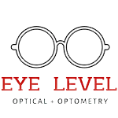
Ultraviolet Radiation and Your Eye Health
While many people are familiar with the skin risk associated with ultraviolet radiation, not many are aware of their eye health impact. For protectors from ultraviolet (UV) light exposure, many take up applying sunscreen regularly, but did you know that it is also important to protect your eyes from the rays as well? Numerous conditions can surface due to prolonged exposure to the rays, and research has even shown that roughly one-third of the adults have experienced the standards symptoms after being exposed to UV light for an extended period. You, too, might have experienced UV rays' symptoms without even realizing it, such as eye irritation, swollen eyes, and even sunburn for the eyes. Fortunately, there are steps that can be taken with the help of eyewear to ensure eye care is the first priority.
Photokeratitis is an eye condition caused by extended exposure to ultraviolet (UV) rays, with the source is commonly the sun. A simple understanding of Photokeratitis can be compared to sunburn but not for the skin but rather for the eyes. It is a common condition associated with extended exposure to the sun, but can also be caused by snow blindness, a situation in which UV rays are reflected by snow and ice. The cause of concern is that ultraviolet rays can affect your eyes' cornea and ultimately damage it from extended exposure. Eye health is now more critical than ever, and with it being more susceptible to damage, your cornea and conjunctiva need to be protected from daunting eye conditions.
Why Are Eyes at Risk?
Your eyes' health is a rather sensitive matter, and multiple eye conditions and eye problems have been linked to ultraviolet exposure. Some common eye problems associated with it are cataracts, cancers of the eye and surrounding skin, pingueculae, macular degeneration, and more. Making it a very concerning subject for everyone. Many people have no idea regarding the extent of damage they can cause to their eyes by merely turning a blind eye towards potential risks and problems.
The World Health Organization (WHO) estimated that nearly 20 percent of all contract cases can be attributed to ultraviolet radiation but can also be prevented with necessary eyewear.
Exposure to ultraviolet rays for extended periods of time can contribute to macular degeneration. Age-related macular degeneration (AMD) is one of the top causes of blindness in adults over 60; however, with UV rays contributing to the problem, it can happen a lot sooner.
Not many people know how much damage they have been sustaining in their younger years because of not fully understanding the extent of ultraviolet rays and their impact. UV rays damage take up years to accumulate, making it impossible to turn back the damage once the deed has been done. This is why wearing protective eyewear and getting frequent eye exams from your doctor can be a real game changer. If you believe you have the symptoms or have been exposed to UV rays previously, the ideal course of action would be to visit an eye specialist, get a proper diagnosis, and exercise precautions.
Importance of Eye Care - How to Stay Safe
You might be interested in knowing that numerous eyewear options can help you maintain good eye health. Much like sunscreen for your skin to avoid being exposed to UV rays, you can make use of sunglasses to lessen their damaging impact. Sunglasses can be your eye's best friend on a hot sunny day, and are the final line of defense against dangerous UV rays. However, keep in mind that while eyewear can be a great option to add extra protection, it is not the only suitable option. You can take your pick regarding your sunglasses' color and their degree of intensity to offer protection. But do bear in mind that dark shades of sunglasses have no relation whatsoever to UV protection effectiveness.
Additionally, your choice of frame styles can play a role in how protected you are from the UV rays. Close-fitting frames provide better and fuller coverage; they also prevent UV rays from peaking in through the side of your sunglasses, offering better protection. However, to get better coverage and experience higher protection for your eyes – it is best to opt for contact lenses. Direct and reflected sunlight can still make it to your eyes despite having sunglasses on, simply because of the Peripheral Light Focusing Effect (PLF).
In which case, using UV rays, protective contact lenses can help you in blocking peripheral light, which is left unblocked by sunglasses. But before you opt for something general, talk to your doctor of optometry about how frequently you explore the outdoor and come in contact with UV rays, and get an expert's opinion on the matter before purchasing to get a better option.

